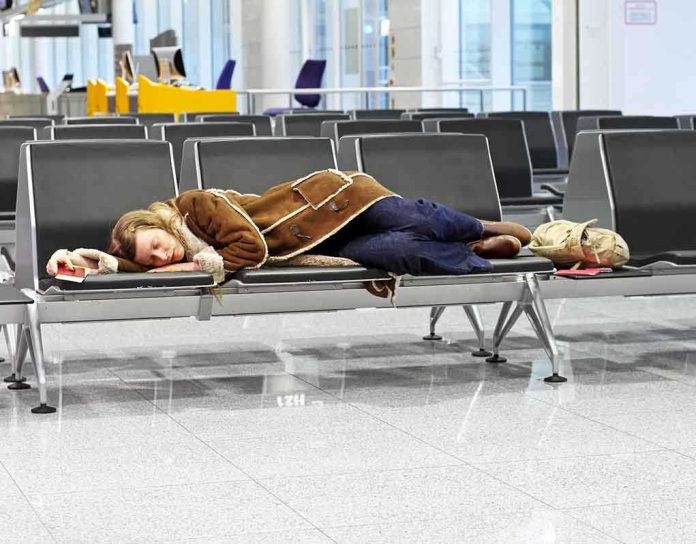
When a third-party cyberattack brought major European airports to a standstill, it exposed the hidden dangers of digital dependence and the fragility of critical infrastructure—a wake-up call for all who value security, sovereignty, and operational resilience.
Story Snapshot
- A ransomware attack on Collins Aerospace’s MUSE software crippled automated check-in and baggage systems in top European airports, forcing a return to manual operations.
- The EU’s cybersecurity agency confirmed the attack as a third-party software breach, not a direct airport hack, highlighting the systemic risk of digital supply chains.
- Thousands of travelers faced delays and confusion, with airports in multiple countries simultaneously affected, revealing a lack of redundancy in essential services.
- The incident sparked urgent calls for stronger cyber defenses in critical infrastructure and renewed scrutiny over reliance on single technology vendors.
Ransomware Attack Unmasks Aviation’s Digital Weakness
Major European airports including London Heathrow, Brussels, Berlin Brandenburg, Dublin, and Cork experienced massive disruptions after a ransomware assault struck Collins Aerospace’s MUSE software. Automated check-in, boarding, and baggage handling systems failed, forcing airport staff into manual processes reminiscent of a pre-digital age. The EU’s cybersecurity agency, ENISA, confirmed the incident as a third-party ransomware attack, immediately raising alarms about the vulnerability of interconnected infrastructure that millions rely on.
Unlike previous attacks that targeted individual airports or airlines, this incident originated in a widely used vendor system, not the airports directly. The cross-border reach meant operational chaos extended across national boundaries, impacting thousands of flights and stranding passengers throughout Europe. The attack’s timing during a period of high passenger volume only intensified its disruptive effects, highlighting a striking lack of backup systems and resilience in today’s digital aviation ecosystem.
Dependence on Third-Party Vendors: A Systemic Risk
Collins Aerospace’s MUSE platform, a backbone for many European airports, became a single point of failure. When attackers crippled this third-party software, its effects cascaded instantly, demonstrating how reliance on a single vendor for mission-critical technology can threaten operational continuity on a continent-wide scale. Cybersecurity experts warn that such dependency multiplies systemic risk—if one node fails, the entire network can falter, especially when manual workarounds have been neglected in favor of digital convenience.
Historically, critical infrastructure sectors like aviation have been slow to address third-party cyber risks despite repeated warnings from security agencies. Previous ransomware incidents disrupted pipelines and healthcare systems, but none had produced such broad, simultaneous operational paralysis in aviation. The attack underscores the urgent need for robust risk assessments, redundant systems, and stronger oversight of technology vendors, especially as the digitalization of essential services accelerates worldwide.
Operational and Economic Fallout
As digital systems crashed, airport and airline personnel scrambled to implement manual check-in and boarding, leading to confusion, delays, and mounting frustration among stranded travelers. Airlines and operators faced soaring costs, lost revenue, and reputational damage. The incident prompted immediate law enforcement involvement, and while ENISA identified the ransomware type, authorities have not publicly disclosed further details, nor has any criminal group claimed responsibility.
EU agency confirms ransomware attack behind airport disruptions | Reuters https://t.co/q9nY6JlgY8
— Manuco (@manuco22) September 22, 2025
Beyond the immediate chaos, the long-term consequences are profound. The aviation industry is now under pressure to reassess its digital supply chain and vendor risk management strategies. Regulatory scrutiny is likely to intensify, with calls for mandatory cybersecurity standards, routine vendor audits, and investment in backup systems. The public’s confidence in the security of critical infrastructure has been shaken, fueling political debates about national sovereignty and the dangers of outsourcing essential services to global technology providers.
Expert Perspectives and Conservative Implications
Cybersecurity professionals describe the attack as a textbook example of systemic weakness—one that should compel all sectors to reevaluate their digital dependencies. Experts argue that over-reliance on singular technology vendors undermines not only operational reliability but also national security and sovereignty, echoing concerns long voiced by advocates of limited government and strong borders. Calls for enhanced industry collaboration and information sharing are balanced by warnings against expanding government overreach that could stifle innovation or infringe on individual and corporate freedoms.
For American conservatives, this European crisis is a cautionary tale. It highlights the necessity of maintaining robust, sovereign control over critical infrastructure, defending against government and corporate overreach, and ensuring that national security and family interests are never sacrificed for digital convenience or globalist efficiency. As the world grows more interconnected—and more vulnerable—this attack underscores the enduring wisdom of resilience, redundancy, and vigilance in protecting foundational freedoms and values.
Sources:
Cyber Management Alliance: European Airports Cyber Attack: ENISA Confirms Third-Party Ransomware
The Register: Ransomware behind global airport outage, says ENISA
Security Affairs: EU agency ENISA says ransomware attack behind airport disruptions









